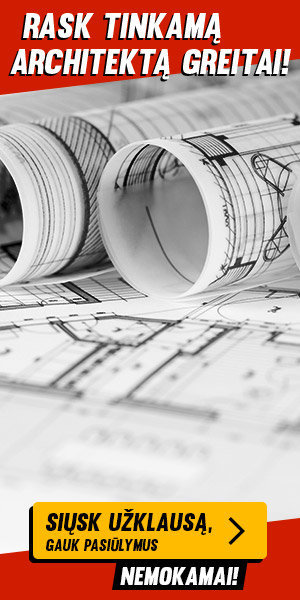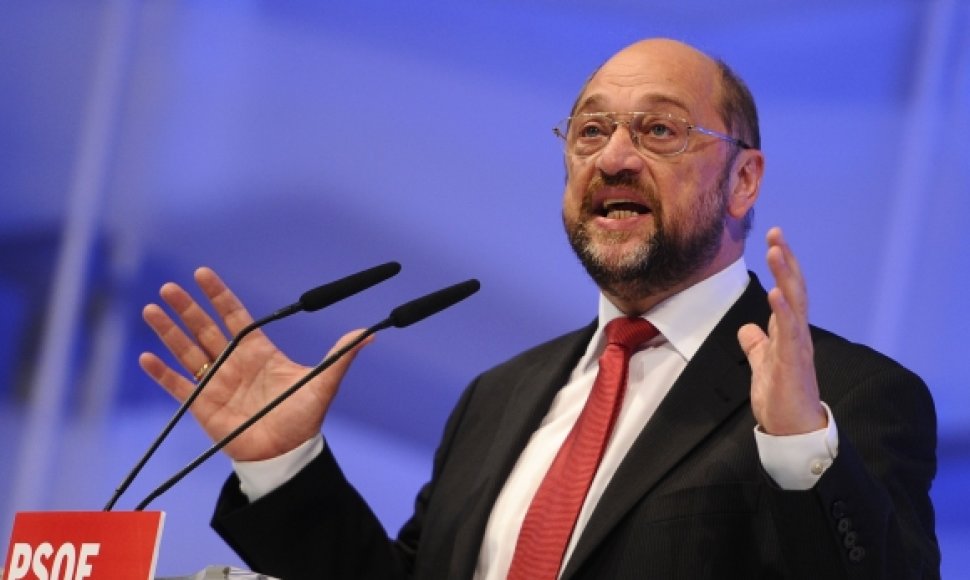Congratulating Lithuanian President Dalia Grybauskaitė on receiving the Charlemagne Prize, the politician said the award was meant to honor all people of Lithuania.
"We are at the same time honoring the people of Lithuania, a people which has undergone immeasurable suffering in its history, which had to fight to win its independence and its rightful place in the European family, a people which has overcome the many hardships of an economic crisis with its head held high, and which, in its unshakeable trust in the European Union and its unwavering commitment to a Europe of solidarity, is an example to us all," the EP president said in Aachen.
"I was deeply impressed with the dignity, calmness and at the same time determination with which people faced up to the economic crisis. Immense sacrifices were demanded of the Lithuanian people," Schulz said talking about the 2009 economic slump in Lithuania when the country's GDB plummeted almost 15 percent, leading to public spending and pensions cuts.
"Yes, people in Lithuania accepted harsh sacrifices and yet, in spite of those sacrifices, people never lost faith in Europe," he said.
Schulz has also praised the Lithuanian president, saying that she says what she means, is not afraid to speak her mind, calls a spade a spade, has low tolerance for bureaucracy, and is a tough negotiator.
"So, Madam President, three qualities come to mind immediately when I think of you: energy, efficiency, and reliability," Schulz said.
In the German politician's words, as a European commissioner, Grybauskaitė reformed the EU budget and greatly contributed to an agreement on the 2007-2013 budget. According to him, it would be important in the current negotiations on the 2014-2020 budget.
"In the current set of tough and long drawn-out negotiations I miss this energy and readiness to compromise," Schulz said.
Schulz, who is a Social Democrat, also acknowledged that he and Grybauskaitė have different stances on the new EU budget.
"We are far from seeing eye to eye on all political ideas, particularly on the policy of one-sided budgetary austerity; that is all part of politics, and honesty in politics. But I greatly respect President Grybauskaitė because she is courageous and straightforward," he said.
The EP president also highlighted the Lithuanian president's role in bringing post-Soviet eastern neighbors closer to the EU.
"President Grybauskaitė is working determinedly to keep open the dialogue with Belarus, which is a thankless task and one which must not blind us to the fact that the cruel dictator Lukashenko is a disgrace to the whole of Europe," Schulz said.
"President Grybauskaitė’s tenacity has also ensured that hers is one of the very few voices among EU politicians that is listened to in Ukraine," he added.
At a solemn award ceremony, the Lithuanian president is being awarded the Charlemagne Prize for her exceptional dedication to seek greater integration in the European Union and find solution to deal the existing crisis.
The award ceremony is attended by President of the European Council Herman Van Rompuy, President of the European Parliament Martin Schulz, Germany's Finance Minister Wolfgang Schauble, and European Commissioner Algirdas Šemeta.
The guests also include Lithuania's former leader, chairman of the Seimas Committee on European Affairs Gediminas Kirkilas, member of the European Parliament Vytautas Landsbergis, and MP Andrius Kubilius.
Previous winners of the Charlemagne Prize include late Pope John Paul II, founding fathers of the European Union Jean Monnet, Konrad Adenauer, Robert Schuman, British Prime Minister Winston S. Churchill, US President Bill Clinton, Czech humanist and former President Vaclav Havel, German Chancellor Angela Merkel, Dutch Queen Beatrix, Luxembourg's Prime Minister Jean Claude Juncker.















